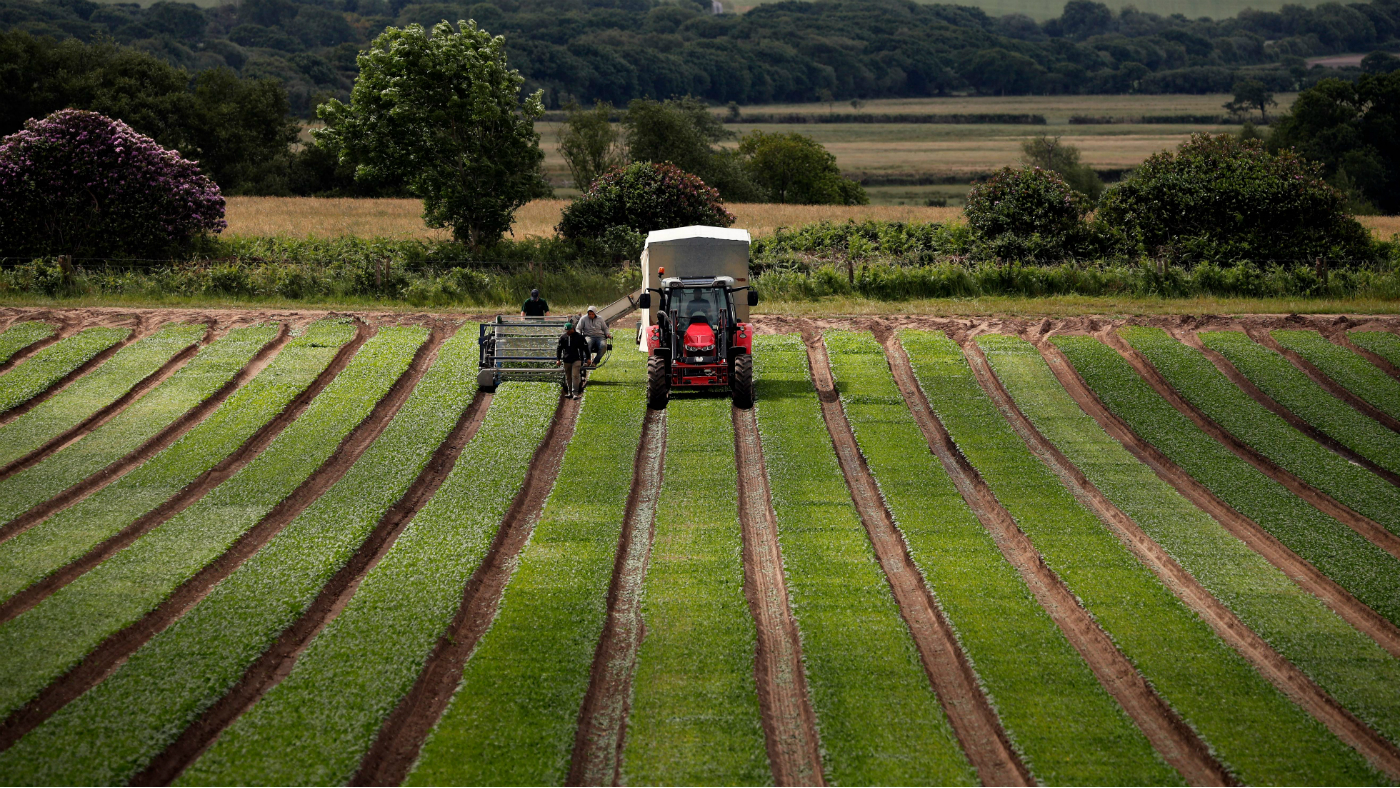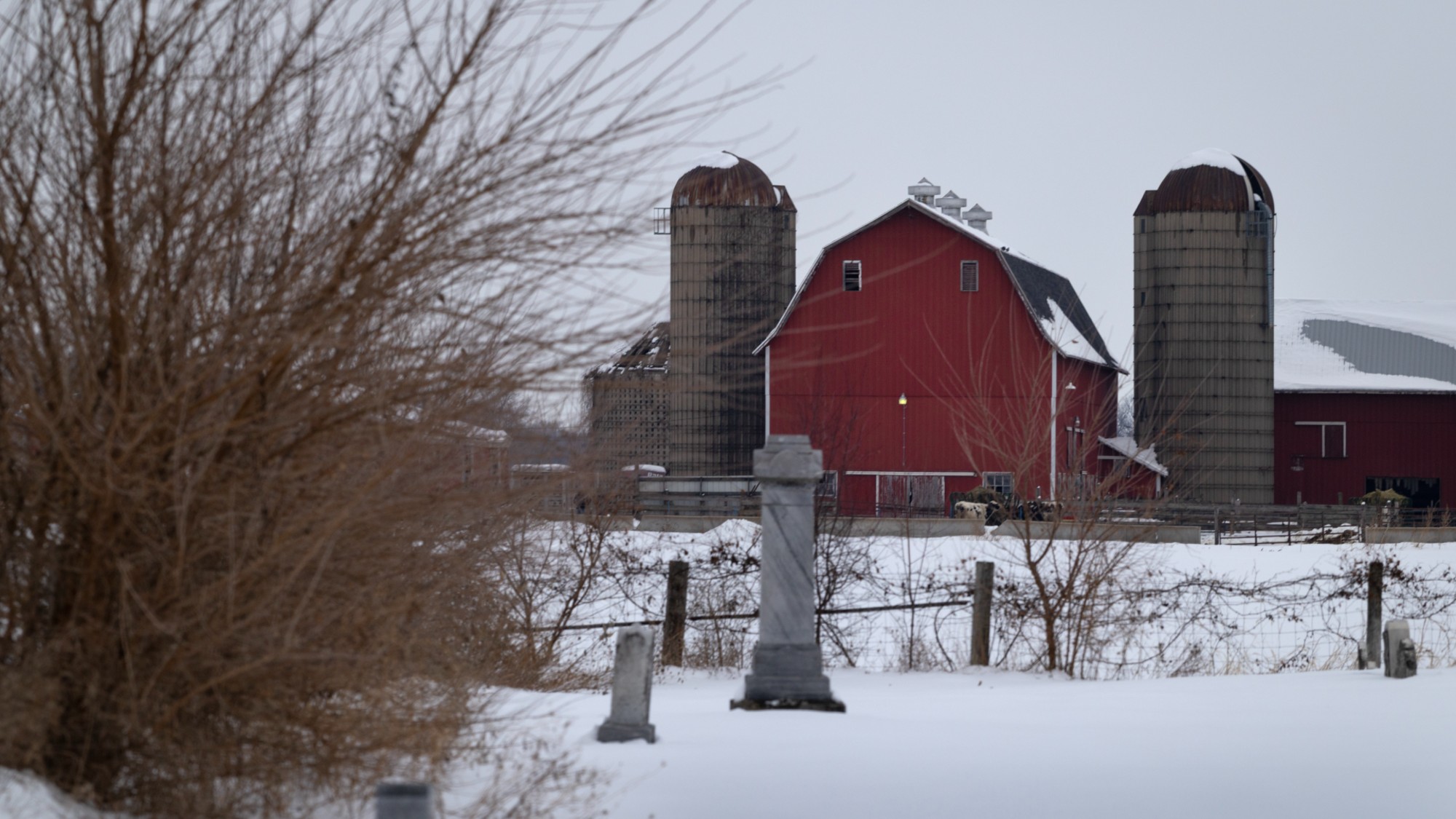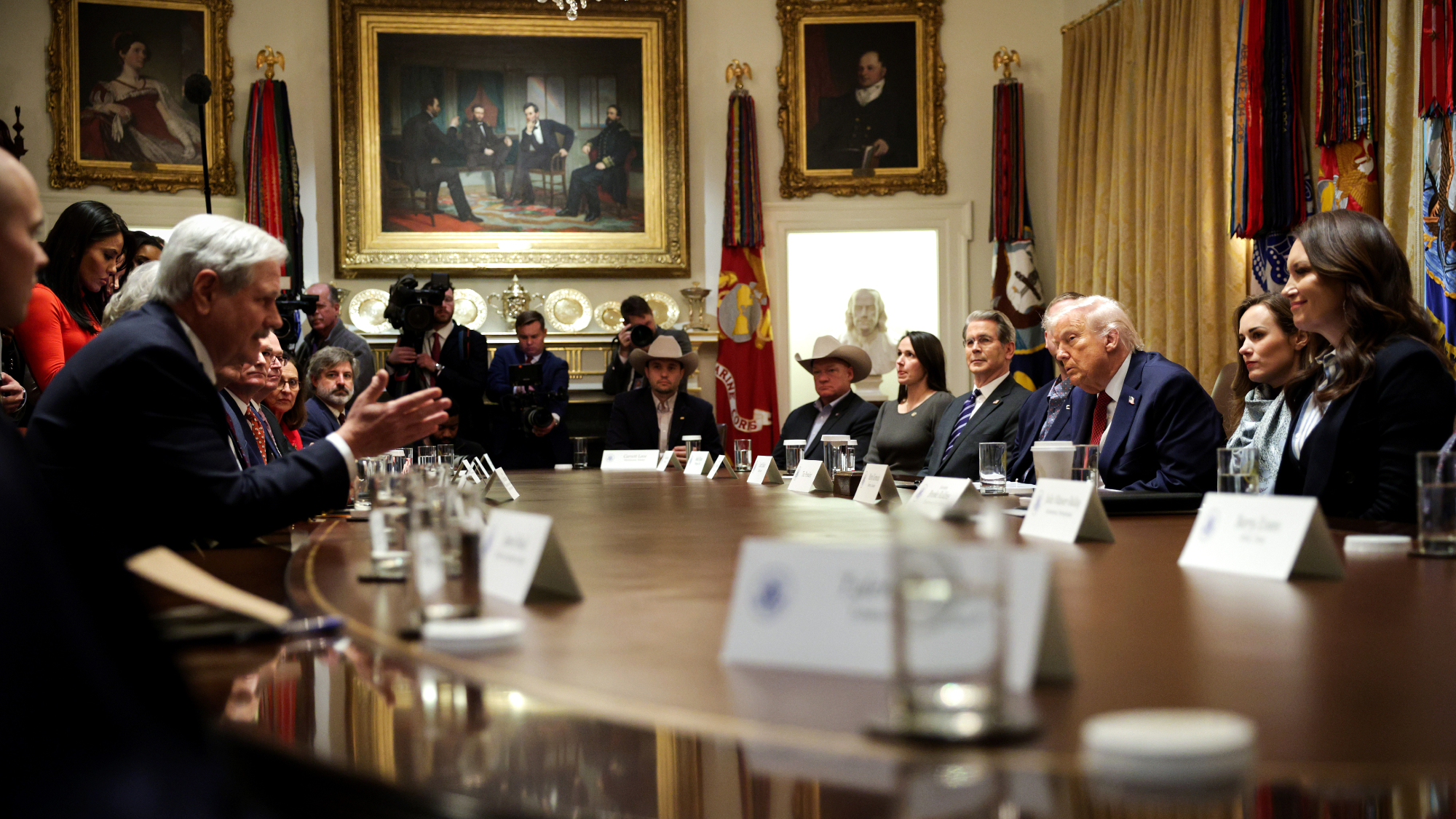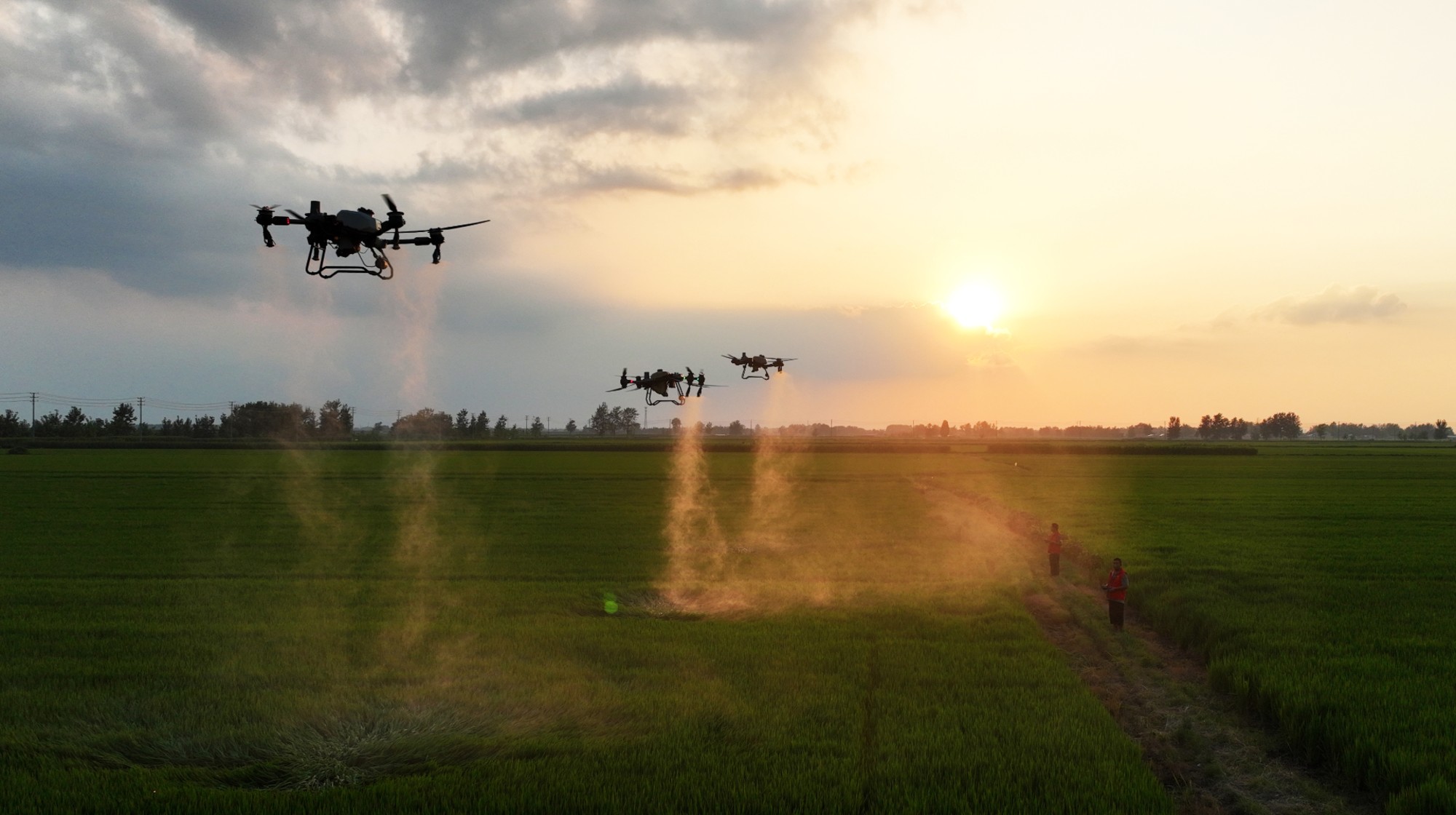Future of farming: a Brexit battle for the British landscape
Environment secretary seeking ‘new blood’ to make UK agriculture greener and more productive as subsidies phased out

A free daily email with the biggest news stories of the day – and the best features from TheWeek.com
You are now subscribed
Your newsletter sign-up was successful
The end of the Brexit transition period will bring sweeping changes to the UK farming sector in one of the largest policy shifts the industry has seen in decades, the government has announced.
Under the plans, farmers in England “will need to cut carbon emissions, create more space for wildlife and make improvements to animal welfare in order to access public money” after the UK leaves the EU and its common agricultural policy next year, The Independent reports.
Environment Secretary George Eustice told BBC Breakfast this morning that the shift towards more environmentally friendly and sustainable farming practices “will be an evolution not a revolution”.
The Week
Escape your echo chamber. Get the facts behind the news, plus analysis from multiple perspectives.

Sign up for The Week's Free Newsletters
From our morning news briefing to a weekly Good News Newsletter, get the best of The Week delivered directly to your inbox.
From our morning news briefing to a weekly Good News Newsletter, get the best of The Week delivered directly to your inbox.
“If we work together to get this right, then a decade from now the rest of the world will want to follow our lead,” he added.
What is the government proposing?
Between next year and 2028, Downing Street will gradually phase out the “direct payments” per hectare handed to farmers under the EU’s Common Agricultural Policy, which total £1.8bn a year in England. Instead, the money will be used to fund the new Environmental Land Management (ELM) scheme.
Eustice told Sky News that the post-Brexit strategy would free farmers in England from the “constraints” of the EU’s controversial system.
A free daily email with the biggest news stories of the day – and the best features from TheWeek.com
During a visit to a farm in East Sussex on Sunday, the environment secretary told reporters that the bloc’s approach was about “rewarding land area rather than what’s done for the environment”. But with Brexit just around the corner, Britain’s “future agriculture policy is going to reward farmers for doing things to reduce climate change and carbon impact”, he added.
The money saved from reducing the current subsidies will be used to pay farmers “to harness their land to protect wildlife and boost carbon stocks through actions such as tree planting and restoring soils”, The Independent reports.
Farmers will also “be supported to improve animal welfare, and the change could see them being paid for reducing the use of cages and crates used in poultry and pig farming, and ending practices such as beak trimming and tail-docking”, adds The Telegraph.
And further public money will be available to help them improve their profitability through “hi-tech and sustainable farming methods”, the newspaper continues.
Alternatively, existing farmers who want out will be offered lump-sum “exit payments”, in a bid to bring “new blood” into the sector, says The Times.
These payments will allow anyone who has had enough of farming to retire “with dignity”, said Eustice, and pave the way for new entrants to the industry who can “bring to the farm something new, different and fresh”.
The Welsh and Scottish administrations will decide separately how to allocate their farm funding.
And the reaction?
Campaigners have “broadly welcomed” the shift towards prioritising the environment, but warn that key details still remain “murky”, reports The Independent.
Some “have concerns about the funding and timescale of the new scheme, as farmers are heavily dependent on the subsidy payments to remain profitable”, says Sky News.
The National Farmers Union (NFU) has described the current direct payments as a “lifeline” for agricultural workers facing changing prices and increasingly unpredictable growing conditions.
“Expecting farmers to run viable, high-cost farm businesses, continue to produce food and increase their environmental delivery, while phasing out existing support and without a complete replacement scheme for almost three years, is high risk and a very big ask,” said NFU president Minette Batters.
“I am worried. If you take livestock as an example, you’ve got a 60% to 80% shortfall in farm business income by 2024.”
Mark Bridgeman, president of the Country Land and Business Association, said the new scheme had the potential to “be a genuinely world-leading policy”, but added: “Many farmers will find it hard to see past the drastic cuts to the basic payment scheme, that begin next year.
“The average family farm will see cuts of over 50% before the new schemes are fully available in 2024.”
Why so slow?
The slow rollout of the new policy has infuriated environmentalists, who point out that the UK farming sector has not seen a reduction in emissions for more than a decade, with agriculture accounting for 9% of the nation’s output.
Tom Lancaster, head of land use policy at the RSPB, said “faster progress is now needed over the coming months as the government sets out its plans in more detail”.
That plea was echoed by Craig Bennett of the Wildlife Trusts, who claims that the EU Common Agricultural Policy has “wreaked devastation on our wildlife” and caused “deep-seated issues in farming communities”.
“Nature needs the help promised by this government and we cannot afford to waste any more time,” Bennett said.
Meanwhile, Dr Richard Benwell, CEO of Wildlife and Countryside Link, has called for greater transparency by the Department for Environment, Food and Rural Affairs (Defra) about the policy change plans.
“Combined with uncertainty for farmers over exports, tariffs and standards in trade deals post-Brexit, there’s a foggy future for farming ahead,” said Dr Benwell. “This uncertainty could mean some farmers turn away from greener options or give up on existing environmental choices, but as this week’s farmland bird index showed once again, there’s no time to lose in investing in a greener farming future.
“We urge Defra to publish more detail on higher environmental standards expected during and after the transition period as soon as possible, so that farmers can plan for the future.”
-
 How the FCC’s ‘equal time’ rule works
How the FCC’s ‘equal time’ rule worksIn the Spotlight The law is at the heart of the Colbert-CBS conflict
-
 What is the endgame in the DHS shutdown?
What is the endgame in the DHS shutdown?Today’s Big Question Democrats want to rein in ICE’s immigration crackdown
-
 ‘Poor time management isn’t just an inconvenience’
‘Poor time management isn’t just an inconvenience’Instant Opinion Opinion, comment and editorials of the day
-
 How corrupt is the UK?
How corrupt is the UK?The Explainer Decline in standards ‘risks becoming a defining feature of our political culture’ as Britain falls to lowest ever score on global index
-
 The high street: Britain’s next political battleground?
The high street: Britain’s next political battleground?In the Spotlight Mass closure of shops and influx of organised crime are fuelling voter anger, and offer an opening for Reform UK
-
 Biggest political break-ups and make-ups of 2025
Biggest political break-ups and make-ups of 2025The Explainer From Trump and Musk to the UK and the EU, Christmas wouldn’t be Christmas without a round-up of the year’s relationship drama
-
 Will Trump’s $12 billion bailout solve the farm crisis?
Will Trump’s $12 billion bailout solve the farm crisis?Today’s Big Question Agriculture sector says it wants trade, not aid
-
 ‘The menu’s other highlights smack of the surreal’
‘The menu’s other highlights smack of the surreal’Instant Opinion Opinion, comment and editorials of the day
-
 Trump unveils $12B bailout for tariff-hit farmers
Trump unveils $12B bailout for tariff-hit farmersSpeed Read The president continues to insist that his tariff policy is working
-
 Is a Reform-Tory pact becoming more likely?
Is a Reform-Tory pact becoming more likely?Today’s Big Question Nigel Farage’s party is ahead in the polls but still falls well short of a Commons majority, while Conservatives are still losing MPs to Reform
-
 Looming drone ban has farmers and farm-state Republicans anxious
Looming drone ban has farmers and farm-state Republicans anxiousIN THE SPOTLIGHT As congressional China-hawks work to limit commercial drone sales from Beijing, a growing number of conservative lawmakers are sounding an agricultural alarm